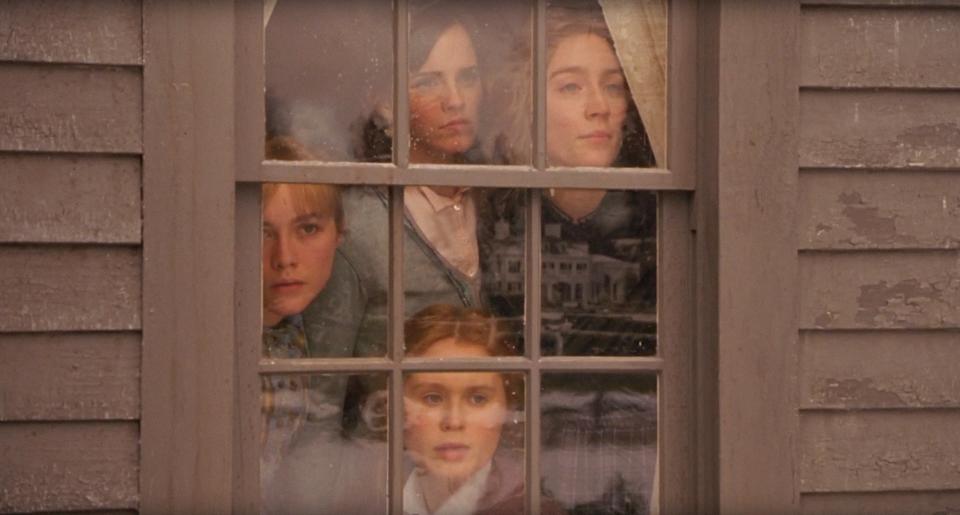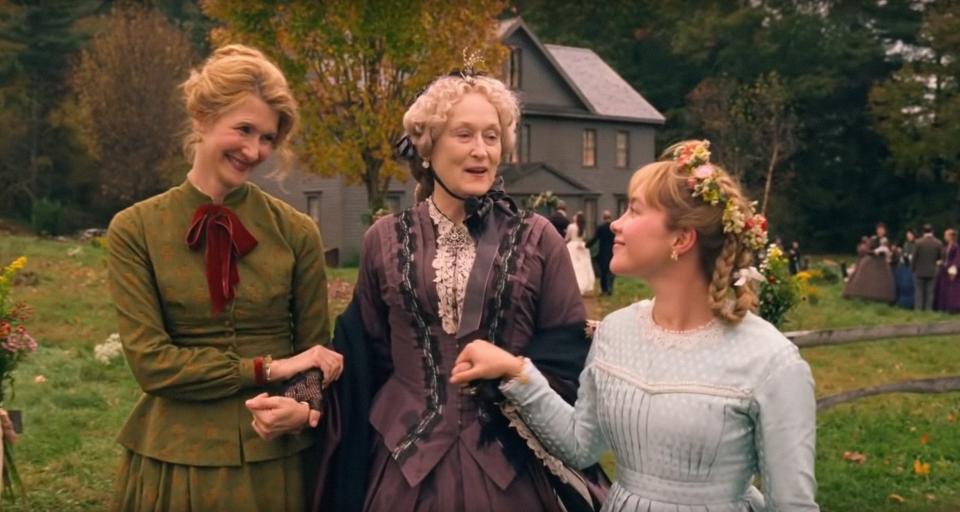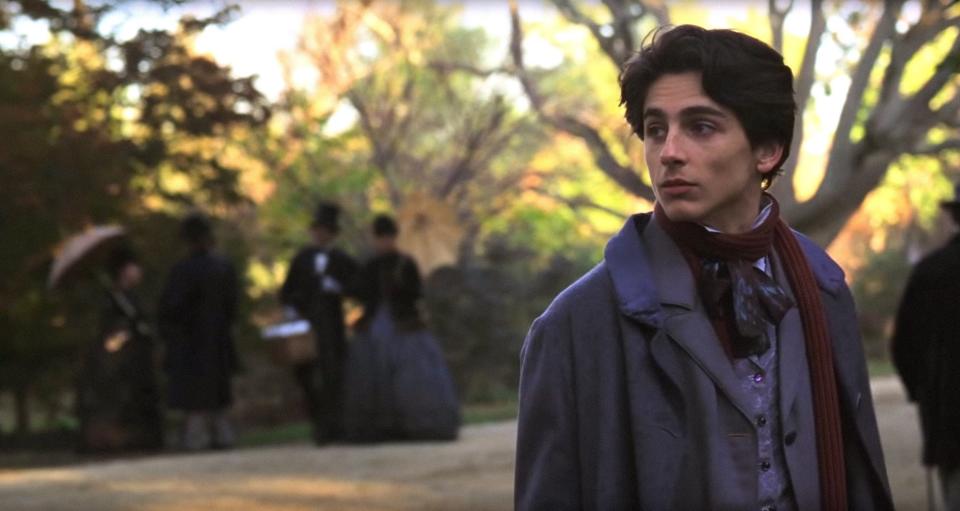Greta Gerwig's Little Women Is Just As Good As You’d Hoped
“We are only girls, but we should be glad to help if we could,” Jo March says, near the beginning of the 1868 novel Little Women. That about sums things up. Little Women is about sisters asserting their humanity in a world that sees them as ornamental. It’s about aiming for perfection when being human makes perfection impossible. It’s a sweeping epic, but instead of battles and sex scenes, it’s haircuts and muffins and hands that meet.
This should be as tedious as an airline safety demonstration. Instead it’s unrelentingly poignant, year after year. Greta Gerwig’s Little Women, in theaters on December 25, marks the seventh feature film adaptation of the beloved novel, which has also inspired six TV series. There’s a Katharine Hepburn Little Women, an Elizabeth Taylor one, and a Winona Rider one. There are two animated Japanese Little Women shows, an opera, a ballet, and a musical.
The 2019 version is as heart-shreddingly gorgeous as they come. Greta Gerwig somehow managed to capture both the feeling of reading by the fire and breaking up with your boyfriend who you still love but you have to leave behind.

MCDLIWO CO011
The March girls—Meg (Emma Watson) Jo (Saoirse Ronan) Beth (Eliza Scanlen), and Amy (Florence Pugh)—are one rung above poor. Their father is away, fighting for the Union Army in the Civil War. For Christmas, their mother gives each of them one copy of a religious text. But the immigrant family down the road is starving, so the Marches hand over their Christmas feast. In Gerwig’s movie—just like in the book, to which it is exceedingly loyal—things continue in this vein, all the way to the bittersweet end. The girls have almost no resources, their father may be gone forever, and one of them is perpetually almost dying. But off they go, trying to be cheery and useful and good. “We are ungrateful minxes,” Jo lectures her sisters, when one dares to say she wishes it was still the weekend.
Logically you should want to give these characters a Swirlie. But they’re charming, probably because Louisa May Alcott based the story of her and her sisters’ real lives as daughters of an eccentric intellectual and a feminist social worker. Devout Christians and on-and-off vegetarians, the Alcotts founded schools, promoted women’s rights, and housed a runaway slave on the underground railroad. Poorer and more radical than the fictional Marches, the Alcotts tried to live the values of transcendentalism—believing that humans are born good and one with nature, and are capable of perfection. This idealism made the Alcotts extraordinary, but it also made them impoverished. Louisa started working as a teenager to help keep the family from starvation. She wrote in her diary, “I will make a battering-ram of my head and make my way through this rough and tumble world.”

MCDLIWO CO014
She did. And so do the Marches, who can never decide if their passions and desires are sacred or sacrilegious. They each have flaws, or at least challenges: Meg is vain, Jo is tactless, Amy is selfish, and Beth is timid. And they each have ambition: Meg wants to run a beautiful home, Jo wants to breathe life into words, Amy wants to be noticed, and Beth wants to give and receive love. They all want to be as good as their mother (Laura Dern), who gives the scarf off her neck to a person in need. Their attempt to be good girls—and then to chafe against that and try to become great women—is so stressful that it’s a relief when Timothee Chalamet shows up as their wealthy, spoiled neighbor, looking as usual like the face a miniaturist would paint on a matchstick, and instantly starts sniffing the girls’ hair. Same with Meryl Streep, who plays the aunt, striding exquisitely into a new career phase as playing Iconic Old Bitches.
If the movie falls a little short of perfection, it does so for the same reasons as the Alcotts and the Marches did—because it reaches for it so hungrily. Every shot looks like an influencer’s Christmas card. Every other line of dialogue (mostly Alcott’s original, peppered with some additions by Gerwig) would be at home an Etsy throw pillow. I don’t mean to diss or diminish Gerwig’s work—Christmas cards are beautiful, and great quotes are put on merchandise for a reason. Louisa May Alcott was radical but this movie is not, and that makes it infinitely comforting. It also helps us understand why there have been seven remakes of a movie about wonderful young women living during chattel slavery.

MCDLIWO CO022
The exceptionally dreamy cast of actors stride from season to perfectly-captured season, over sandy beaches and snowy fields and leaf-covered hills and rainy cobblestones. Watching them grow and love and experience loss feels like unwrapping a gift and seeing that it’s an album of family photos you had thought were lost. Or at least it did to me, a person who was raised in a family so devoted to Little Women that multiple members of it are named after the characters.
But watching it, I wished the movie’s actors and creators, in their determination to be perfect, could read the words of Mary Oliver, another American woman writer who was influenced by Transcendentalism:
You do not have to be good.
You do not have to walk on your knees
for a hundred miles through the desert repenting.
You only have to let the soft animal of your body
love what it loves.
Little Women is devastating and exquisite and a little bit limited. And next time, we hope Meryl and Saoirse do a buddy comedy.
Jenny Singer is a staff writer at Glamour.
Originally Appeared on Glamour

